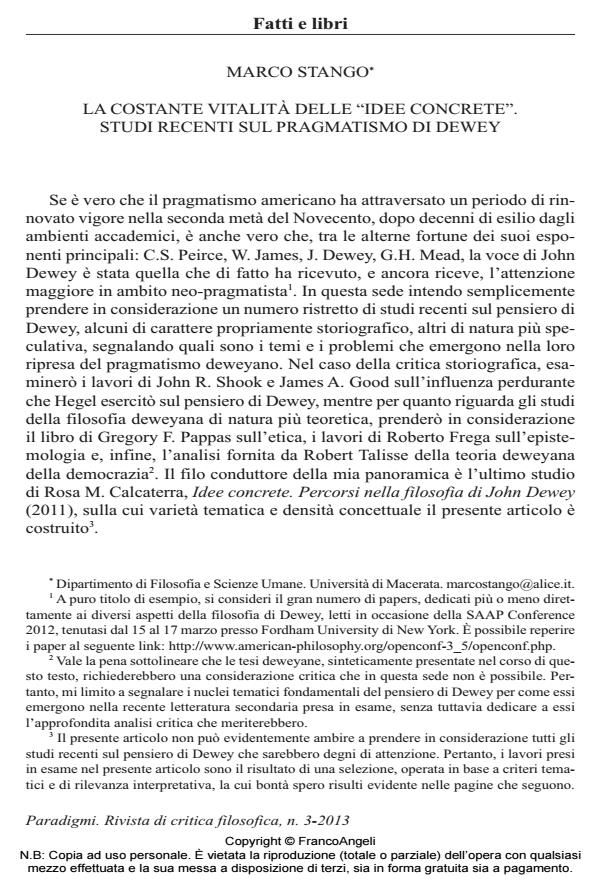The Enduring Vitality of" Concrete Ideas". Remarks on Recent Studies on Dewey’s Pragmatism.
Journal title PARADIGMI
Author/s Marco Stango
Publishing Year 2014 Issue 2013/3
Language Italian Pages 12 P. 185-196 File size 98 KB
DOI 10.3280/PARA2013-003012
DOI is like a bar code for intellectual property: to have more infomation
click here
Below, you can see the article first page
If you want to buy this article in PDF format, you can do it, following the instructions to buy download credits

FrancoAngeli is member of Publishers International Linking Association, Inc (PILA), a not-for-profit association which run the CrossRef service enabling links to and from online scholarly content.
The paper discusses some recent studies on John Dewey, concerning the influence of Hegel’s thought, his ethics, his epistemology, and his theory of democracy.
Keywords: Dewey, Epistemology, Ethics, Hegel, Pragmatism, Theory of Democracy. 202 Paradigmi. Rivista di critica filosofica
Marco Stango, La costante vitalità delle "idee concrete". Studi recenti sul pragmatismo di Dewey in "PARADIGMI" 3/2013, pp 185-196, DOI: 10.3280/PARA2013-003012